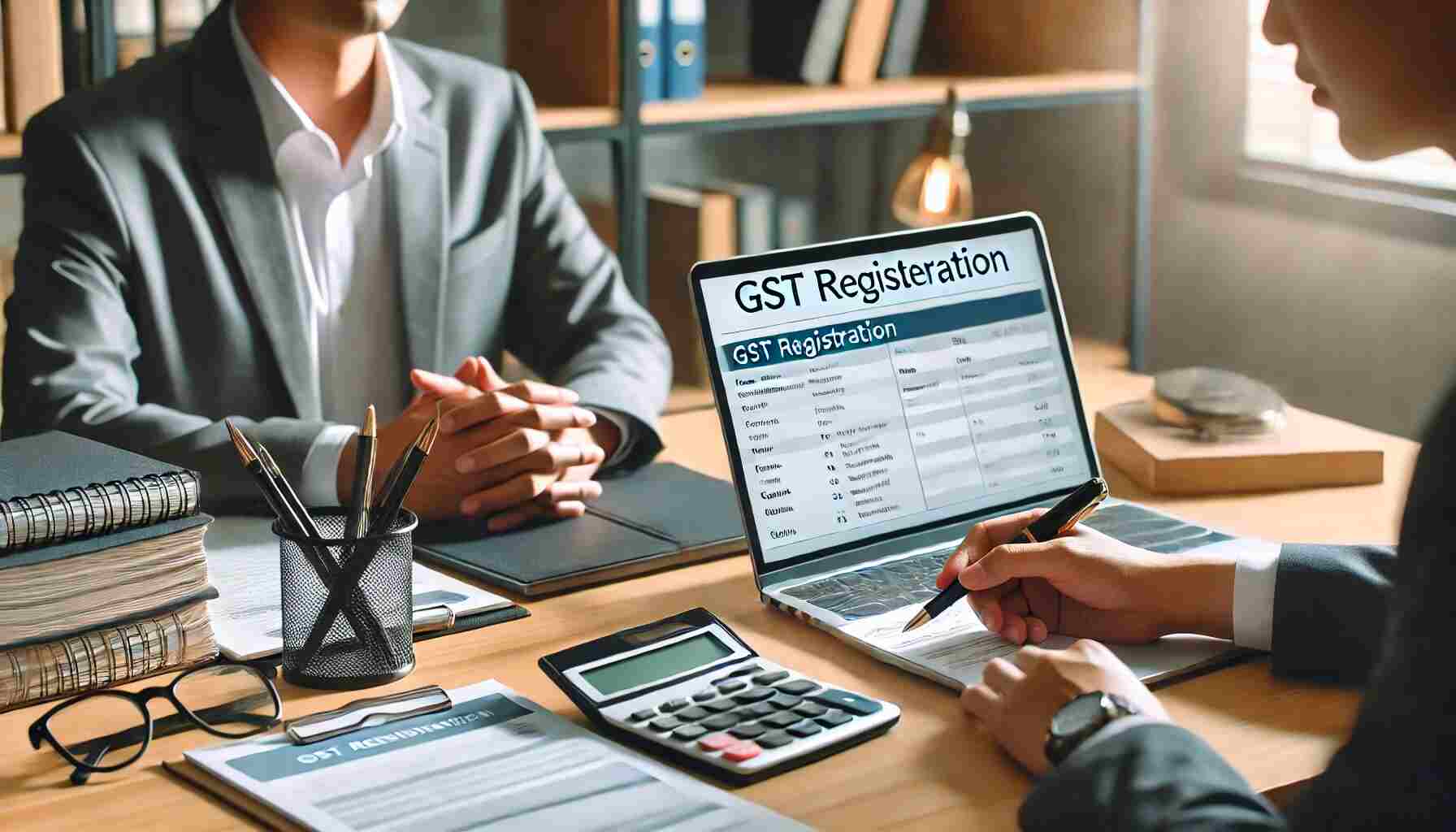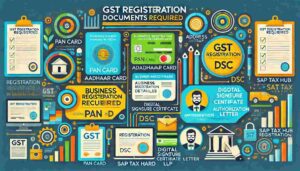The advent of the Goods and Services Tax (GST) in India significantly impacted various industries, including the education sector. Educational institutions, such as schools, colleges, and coaching classes, need to understand their tax responsibilities under the new GST regulations. This blog explains the process of GST registration for educational institutions, the exemptions available, and why GST for schools is important to consider.
What is GST and Its Consequences to Educational Institutions?
For educational institutions, GST impacts not only the services they provide but also the GST registration for educational institutions if their services fall outside exempt categories. GST education has become crucial for administrators to understand the nuances of taxable and non-taxable services.
For purposes of compliance under GST, educational services are sub-divided into three categories:
- Government Recognized Educational Institutions – These are the private and public primary and secondary educational institutions, colleges, and universities with a board or a recognizable statutory body.
- Private Educational Institutions – This category covers the other privately owned institutions such as international schools, coaching centers, and professional training schools.
- Vocational Training and Skill Development Institutes – These are the other bodies which offer technical and professional education and training.
Exemptions Under GST Relating To academic Institutions
Some services provided by educational institutions are exempt from GST, such as core educational services. However, GST for educational services remains applicable for specific activities like private coaching, skill development, and non-academic services provided by institutions.
Services Provided By Pre-School To Higher Secondary Schools – Services rendered by institutions up to higher secondary (Class 12) are fully exempt from GST.
Degrees Granted By Colleges And Universities – Colleges and universities offering degree courses recognized by law are also exempt.
Transport Services Provided To Students and Staff – Services rendered by an educational institution to transport its students and staff are also tax free.
Hostel and Mess – If these services are rendered by the educational institution itself, they are exempt from GST.
Admission Related Fees Charged – Fees collected for entrance examinations, admissions, and for related administrative purposes are exempt from GST.
Other Allied Services, Such as Coaching Classes, Non-If not Associated With Recognized Educational Institutions Are Certain Non GST Applicable.
Who Needs GST Registration?
For schools, the question often arises: Do schools need GST registration? If a school exceeds the threshold for gross receipts or offers taxable services like coaching, then registration becomes mandatory. Similarly, GST registration for coaching classes is required if the coaching center offers taxable services:
If In A Financial Year, The Gross Receipts Are More than Rs. 20 Lakhs, Are Rs. 10 Lakhs For Special Premium States – Each educational institution or coaching center that crosses this threshold is compelled to register for GST.
- Offering Taxable Services – Any institution that provides non-exempt services like Head private coaching, skill development, or online education will require GST registration.
- Selling Online – If an institution already has materials for study, like books or courses, they can sell them through an e-commerce platform and will require registration under GST.
- Supply of Services Between States – All institutions providing services in more than one state should register for GST irrespective of their revenue.
- Steps in GST Registration for Educational Institutions – To apply for GST registration for educational institutions, institutions need to follow a set process, including submitting the necessary documents and verifying their business activities under GST.
- Logging on to GST Portal – Visit GST website www.gst.gov.in and click on the option ‘New Registration.’
- Entering Basic Information – Fill in the name of institution, PAN, address, and the nature of business for registration.
- Documents Required – Upload the following documents:
1. Institution PAN Card
2. Address Proof
3. Certificate of Incorporation (where applicable)
4. Bank Account information
5. Authorization letter of the signatory - Verifying through OTP – The application can be completed by confirming from an OTP.
- Issuance of GSTIN – After confirmation, you will receive your identification number.
For excellent registration purposes, institutions can contact a GST Registration Consultant in Delhi or reach out to a qualified CA Firm in Delhi NCR for services regarding compliance assistance.
Educational Services and Their Fording GST
Certain services provided by educational institutions, such as coaching classes and training services, are subject to GST on educational institutions. Similarly, GST on services provided to educational institutions includes taxable services such as security and facility management:
- Exempted Services – Core educational services from registered institutions remain exempted from tax.
- Private Coaching and Training Institutes – 18% GST are the charged.
- Online Educational Services – Charged 18% GST for paid online courses.
- Sale of Study Material – Provided on USB, video lectures and other digital content may attract 12-18% GST. However, printed books are exempt.
Know More About GST Audit Compliance For organization
After an educational institution is registered under GST, they are subjected to tax return filing as well as tax reporting:
- Regular GST Return Filing – Institutions must file a monthly GST return showing sales and purchases, GSTR-1 and GSTR-3B.
- E-way Bill Generation- institution that deals with supply of goods such as books or IT equipment require e-way bill.
- Input Tax Credit (ITC) – ITC on services such as security, facility management, and any other expenses related to the business claimed by the Institutions.
- Issuing GST Invoices – Tax invoices that are issued should be having the correct GSTIN and the relevant tax rates.
- Annual GST Audit – Big institutions that surpass the turnover limits might need to conduct a yearly audit of GST.
How a GST Registration Consultant Can Help
Educational institutions offering GST for education courses, such as online or coaching programs, may need professional assistance to navigate the complex GST landscape and ensure compliance.
- Assessing the applicability of GST.
- Performing the steps to register for a GST.
- Adhering to the tax regulations.
- Timely submission of GST returns.
- Handling audits and tax queries.
Likewise, working with a CA Firm in Delhi NCR can provide further specialist services for these educational institutions.
Conclusion
o ensure compliance and avoid legal risks, educational institutions must understand the intricacies of GST for educational institutions. Whether it’s about GST registration for educational institutions or GST for education courses, proper guidance is essential.
If your institution requires help with GST registration, compliance, or tax planning, then reach out to a professional today to remain a step ahead of regulatory requirements.




